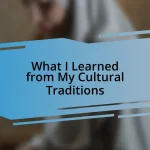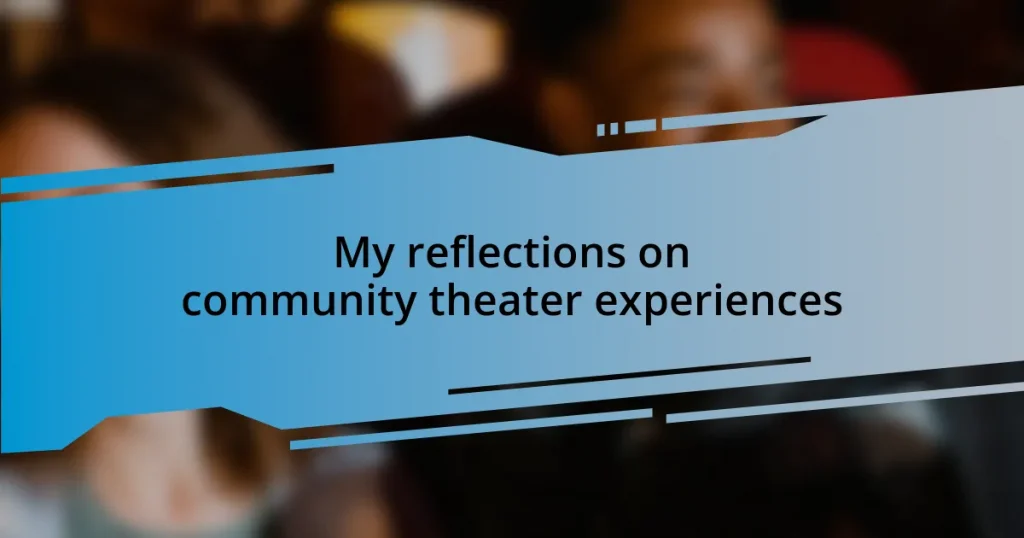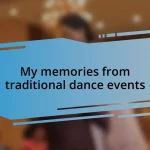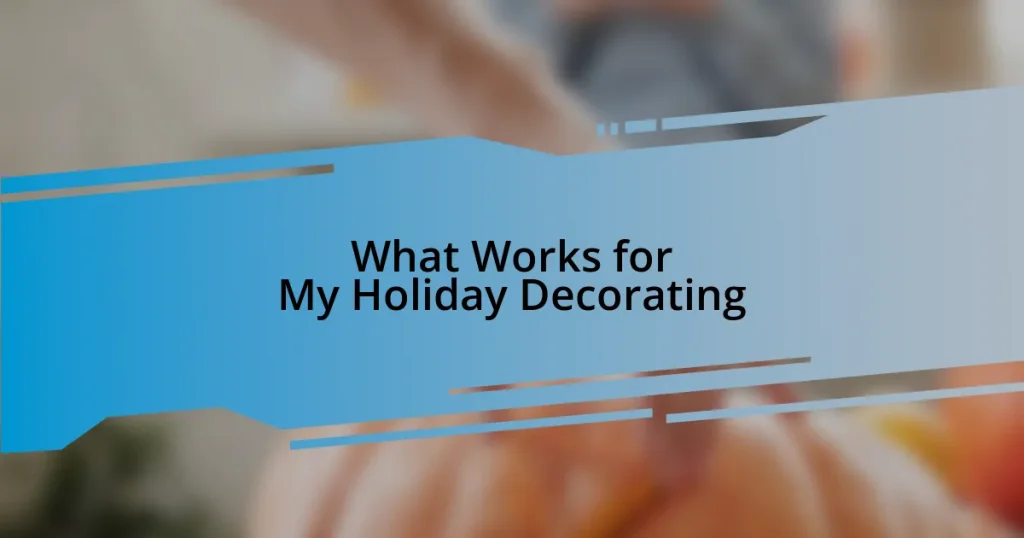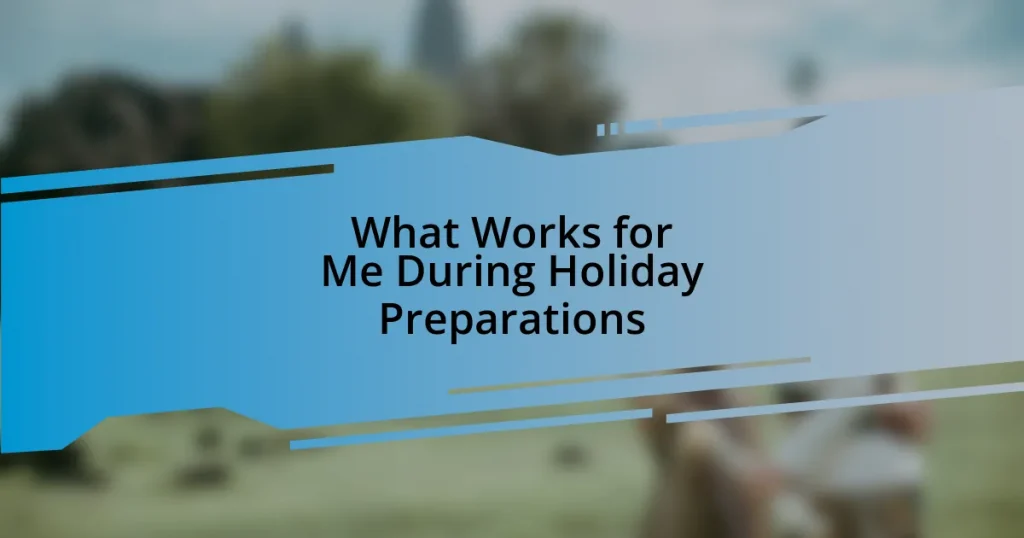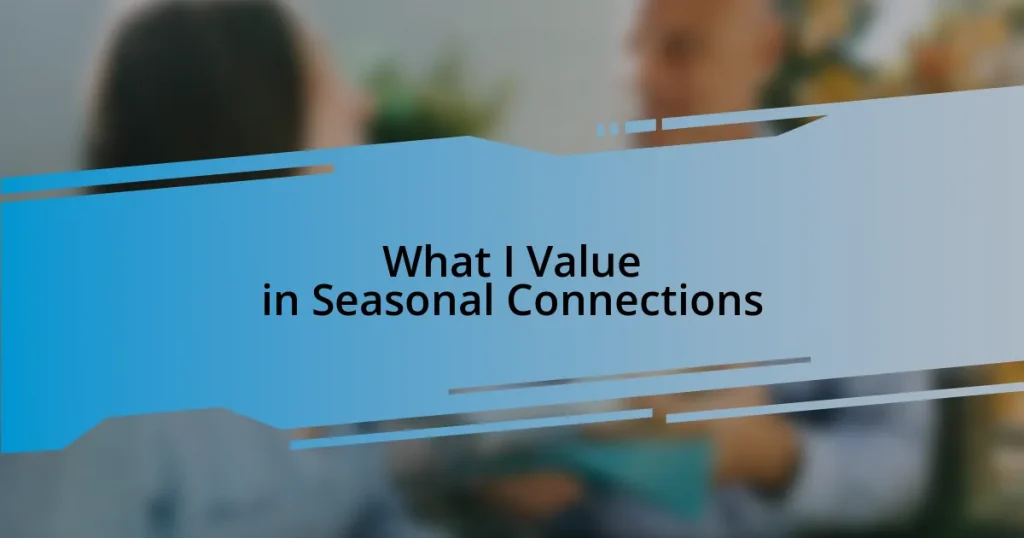Key takeaways:
- Community theater fosters personal growth through risk-taking, collaboration, and self-reflection, enhancing skills like public speaking and teamwork.
- It builds deep relationships and a sense of belonging among participants, creating lasting bonds that extend beyond performances.
- Community theater contributes to cultural enrichment by giving voice to local stories and can spark important conversations on social issues.
- Navigating challenges in theater, such as technical difficulties and differing personalities, strengthens adaptability and communication skills among cast members.
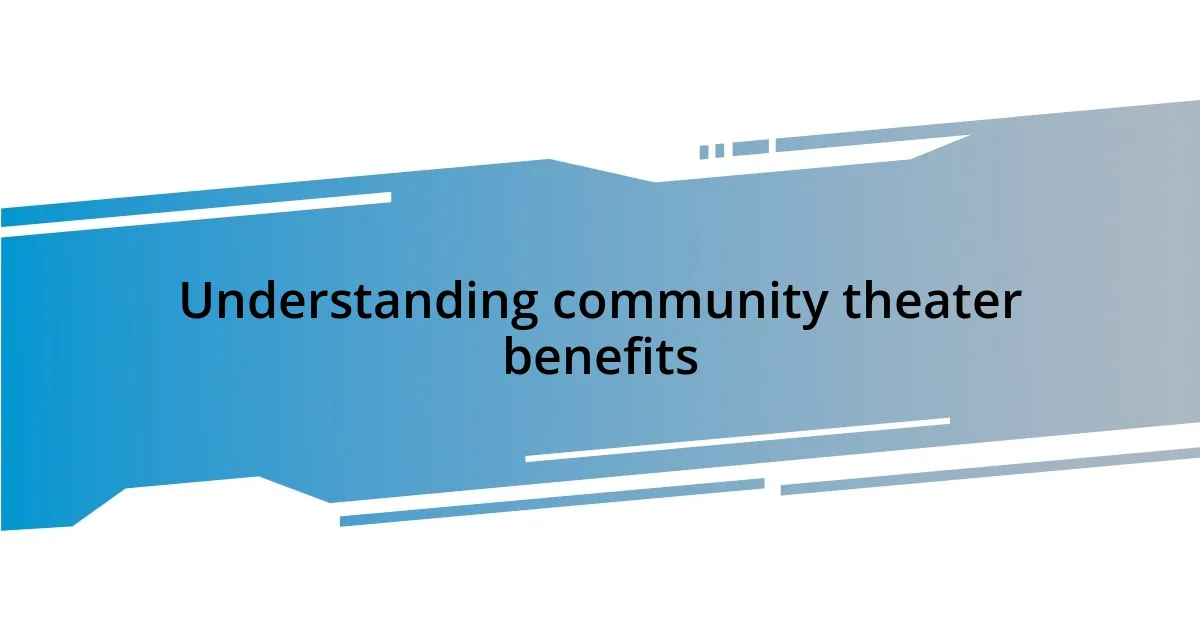
Understanding community theater benefits
Community theater serves as a powerful outlet for creativity and personal expression. I remember my first experience on stage; the rush of emotions was unparalleled. It wasn’t just about performing; it was about sharing stories that resonated within our community. Have you ever witnessed how a single performance can bring people together, sparking conversations that linger long after the curtain falls?
Beyond the stage, there’s a profound sense of belonging that community theater cultivates. I’ve often felt that magical connection with fellow cast members, all of us united by our passion for storytelling. It’s intriguing to think about how these relationships often extend beyond rehearsals, creating lasting friendships. Isn’t it incredible how a shared goal can bond individuals from vastly different walks of life?
Another remarkable benefit lies in personal development. Engaging in community theater has taught me invaluable skills like teamwork, public speaking, and even empathy. I’ve seen shy individuals blossom into confident performers, their stories learned and shared with compassion. Have you ever thought about how stepping into a character’s shoes can broaden our understanding of others, transforming not only ourselves but our entire community?
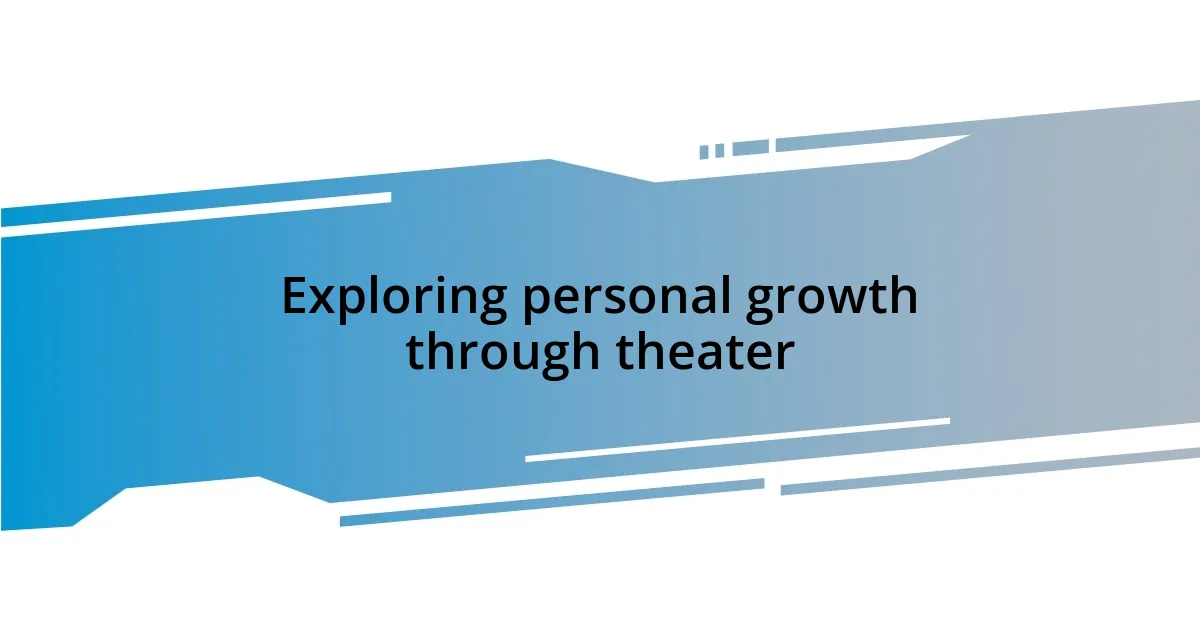
Exploring personal growth through theater
Theater offers a unique space where personal growth thrives. I remember my first improvisation session; I was terrified to step out of my comfort zone. But as the moments unfolded, I discovered the joy of spontaneity. It was liberating to trust my instincts and embrace the unknown. Isn’t it fascinating how taking risks on stage can translate into greater confidence in our daily lives?
In my experience, the beauty of community theater lies in the lessons learned from collaboration. During one production, we faced numerous challenges; our director pushed us to communicate openly and support one another. I found myself evolving through these experiences, developing both my listening and cooperation skills. Have you ever noticed how deep communication can enhance not just our performances, but also our relationships outside the theater?
Moreover, being part of a theater community encourages self-reflection. Each character I portrayed required me to dive deep into my own emotions, exploring aspects of myself I hadn’t considered before. It was eye-opening to realize how much personal history shaped my performances. This journey of understanding has profoundly influenced how I see myself and others. Don’t you think that the insights gained from stepping into different lives can have a lasting impact on our worldview?
| Aspect | Impact on Personal Growth |
|---|---|
| Risk-taking | Increases confidence and spontaneity |
| Collaboration | Enhances communication and relationships |
| Self-reflection | Deepens understanding of oneself and others |
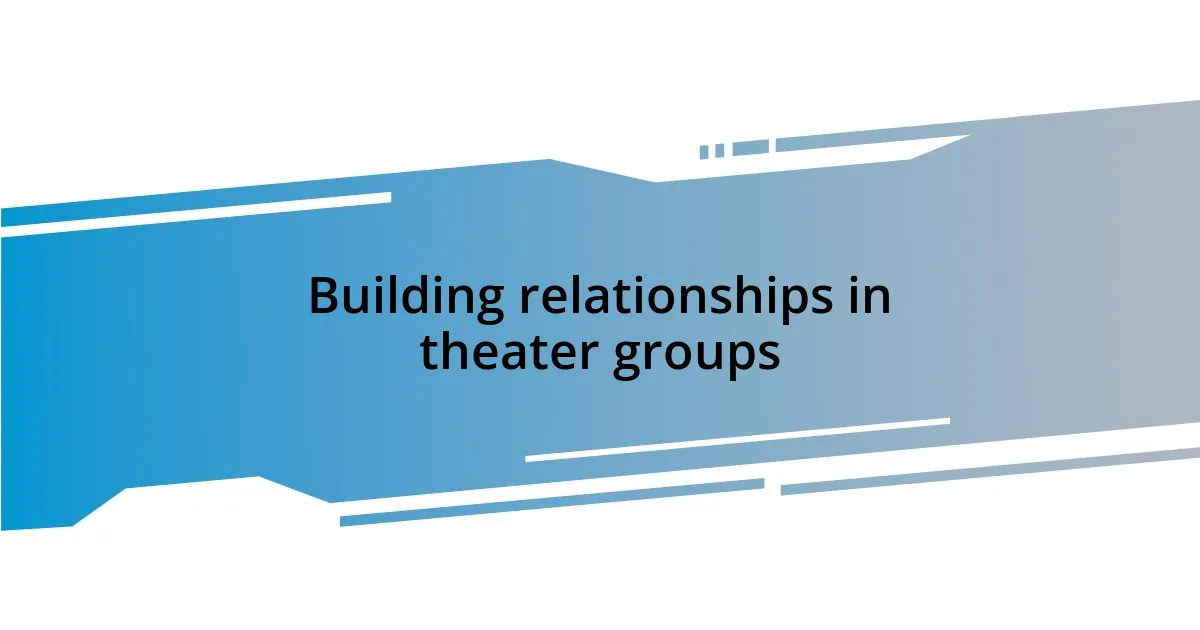
Building relationships in theater groups
Building relationships in theater groups is an experience like no other. Each rehearsal transforms a collection of individuals into a united ensemble, working toward a common vision. I recall a time when, during a particularly long rehearsal, we shared stories about our lives during breaks. Those shared moments forged bonds that extended beyond the stage. There’s something heartwarming about collaborating closely with others, finding harmony in our differences, and creating art together.
- Trust: Developing trust among cast members can lead to more authentic performances.
- Support: Offering each other emotional and logistical support fosters a nurturing environment.
- Shared Goals: Working toward the same objectives cultivates camaraderie and respect.
- Vulnerability: Being open on stage often leads to deeper emotional connections off stage.
- Celebration: Coming together to celebrate small victories strengthens relationships.
Every time the curtain rises, I feel that exhilarating sense of solidarity with my fellow actors. It’s in those moments of laughter during rehearsals or shared anxiety before performances that we truly become a family. I vividly remember one production where we faced numerous technical issues. Instead of getting frustrated, we banded together, supporting and cheering each other on. That night, as we took our bows, the applause felt not just like recognition of our performance, but as a celebration of the unique relationships we’ve built along the way.
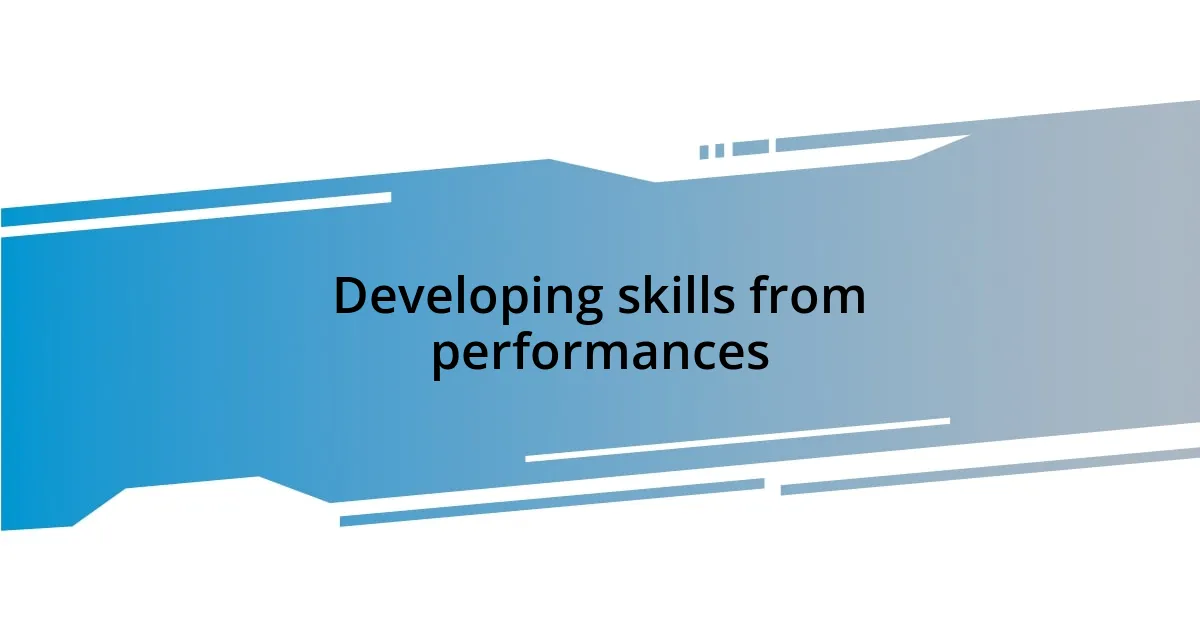
Developing skills from performances
Participating in performances has greatly enhanced my adaptability. I recall a time during a dress rehearsal when our scene was thrown off by unexpected noise from outside. Instead of freezing up, I instinctively improvised and went off-script, which not only salvaged the moment but also sparked laughter amongst the cast. This taught me that being flexible in the face of surprises can be a valuable life skill. Have you ever experienced a situation where you had to think on your feet?
Furthermore, each practice session I’ve participated in has cultivated my public speaking skills. Initially, standing in front of an audience terrified me, but through countless rehearsals and performances, I learned to channel that anxiety into energy. It’s fascinating how training your voice and presence on stage can transform your confidence in everyday conversations. Isn’t it interesting how much our skills on a stage can touch our lives beyond it?
The teamwork involved in theater is another crucial skill that develops through performances. I remember a particular scene that required intricate choreography; every actor had to know their exact position and timing. It was like a beautifully complex dance where any misstep could lead to chaos. This experience showed me how collaboration, planning, and trust can create something special. When have you felt the power of teamwork shaping an outcome in your own life?
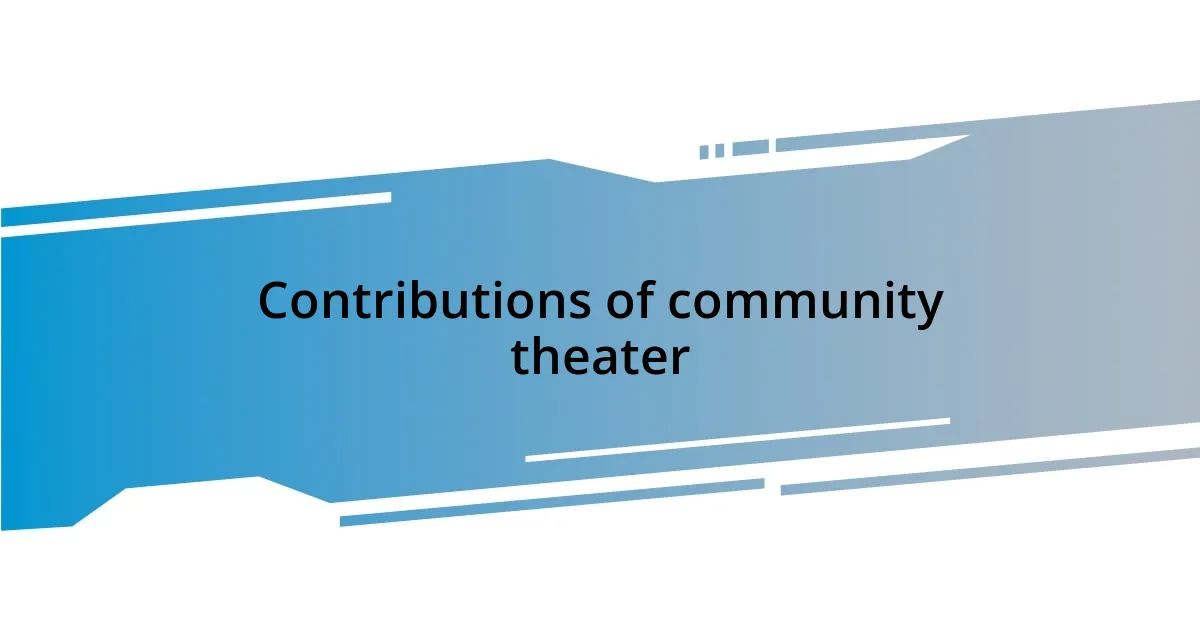
Contributions of community theater
Engaging with community theater contributes significantly to cultural enrichment within our neighborhoods. I’ve often felt that these productions give a voice to local stories, highlighted through the diverse backgrounds of the cast and crew. For instance, in one play centered around our town’s history, I was amazed by how everyone brought their unique perspectives to the narrative, transforming a simple story into a rich tapestry of experiences. Doesn’t it make you wonder how art can reflect the intricate lives of those around us?
Moreover, community theater fosters a sense of belonging and identity for participants and audiences alike. I remember watching a local production where many of the attendees recognized friends and family on stage—cheering for them as if they were heroes. It created an atmosphere of pride and connection that celebrated our community. Don’t you find it uplifting when shared experiences bring people closer together?
Lastly, the impact of community theater goes beyond mere entertainment; it acts as a catalyst for social change. Through powerful storytelling, we can challenge perspectives and ignite conversations on important issues. I once participated in a performance addressing mental health awareness, and the dialogues it started within our audience were incredibly profound. Have you seen how art can inspire action and foster understanding in your community?
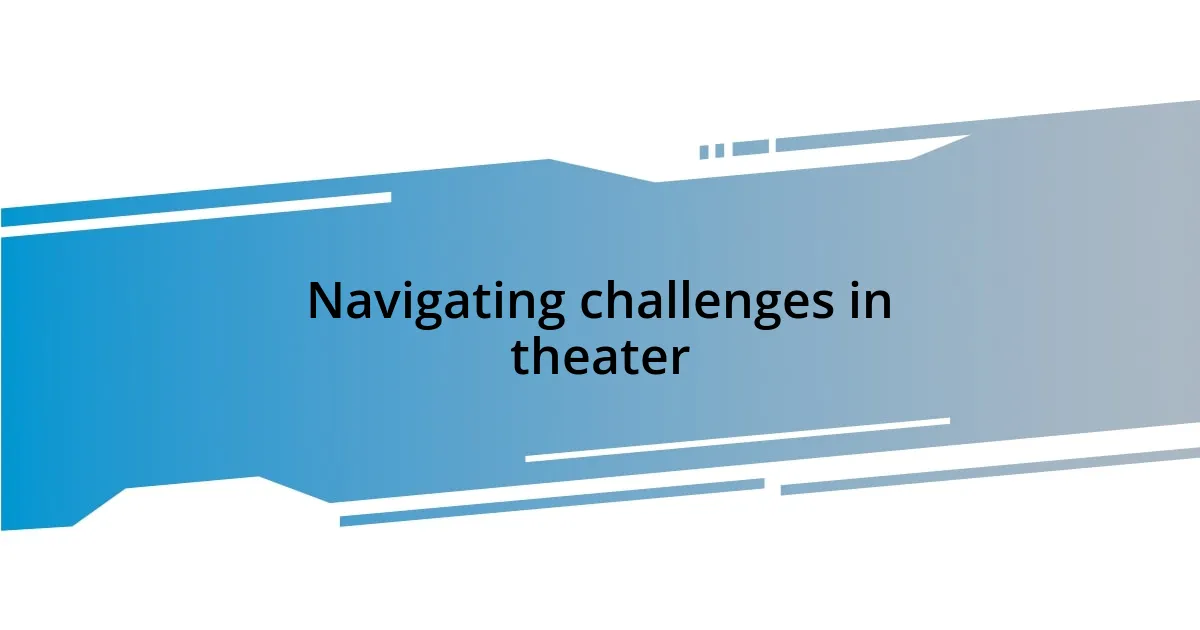
Navigating challenges in theater
Navigating the challenges in theater can be an exhilarating yet daunting experience. I vividly remember a production where our lead actor fell ill just days before opening night. The uncertainty hung in the air, but stepping in as an understudy not only tested my limits but also deepened my respect for every role in a show. Have you ever found yourself rising to an occasion that pushed you beyond your expectations?
Technical difficulties can be another hurdle that keeps you on your toes in the theater world. During one of our performances, the sound system malfunctioned at a crucial moment, leaving us in charged silence. Instead of panicking, I turned to my fellow actors, and we improvised a scene of physical comedy to keep the audience engaged. It was a powerful reminder of how adaptability can turn a potential disaster into an unforgettable moment. Is there a time when you transformed a challenge into an opportunity?
Lastly, managing differing personalities within a cast can be quite the balancing act. I’ve encountered passionate actors who had strong opinions about the interpretation of their characters. During one rehearsal, rather than letting tensions flare, I suggested an open forum where everyone could express their thoughts. This not only diffused any hard feelings but also enriched our production with diverse interpretations. How important do you think communication is in resolving conflicts, especially in team settings?
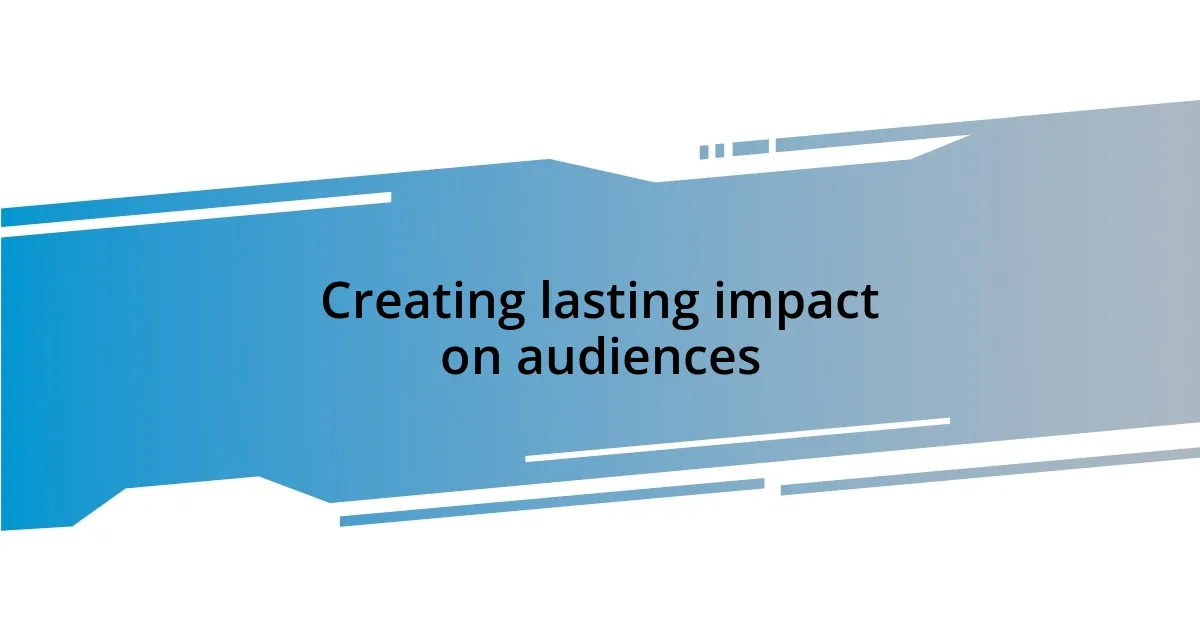
Creating lasting impact on audiences
One of the most profound ways community theater creates a lasting impact is through the emotional resonance of its performances. I recall a production of a classic play that tugged at my heartstrings, taking me on a journey of love, loss, and redemption. The silence in the theater after the final curtain fell was palpable—people were moved, reflecting on their own experiences. Have you ever felt the weight of a story linger with you long after it ends?
Beyond the immediate emotions, community theater cultivates critical conversations among its audience. After one show, a group of us gathered at a local café to discuss the themes and characters. Everyone brought their insights, transforming a simple chat into a vibrant exchange of ideas. I found it fascinating how a single narrative sparked such diverse perspectives. Isn’t it incredible how a play can unite people in discussion, encouraging them to see the world through different lenses?
Moreover, the connections formed during these performances can echo through the community long after the final bow. I remember meeting someone at a post-show gathering, and we bonded over our shared experience as both audience members and supporters of local art. That night led to collaborations that enriched our community even further. Can you think of a moment when a shared experience created a ripple effect in your own life?





